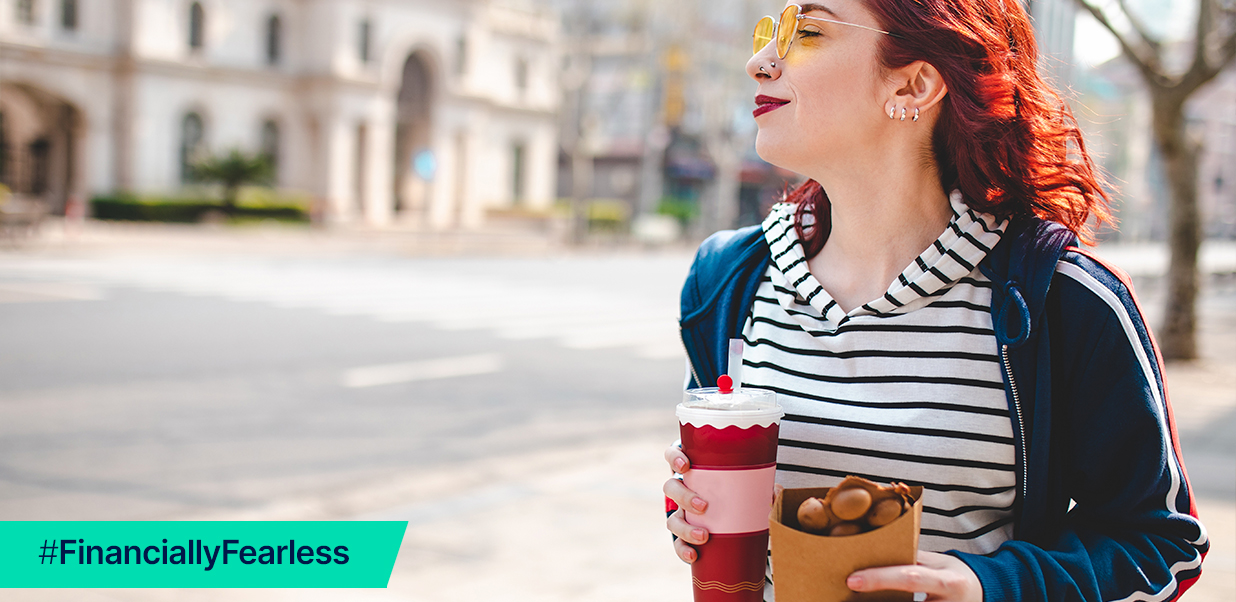Don’t worry, buy that frappé
Review your spending, but don’t feel guilty about buying your favourite coffee.

Last Updated: 1 January 2003
Believe it or not, buying your favourite iced vanilla frappé won’t stop you buying your first home. Or saving for anything else for that matter.
Don’t let anyone tell you otherwise.
Our personal finances are well personal. And you shouldn’t feel guilty for a coffee once or twice a week.
What’s important is that you remember that small purchases over time can add up to large amounts. That’s the valuable lesson. But if your expenses were just rent/mortgage, basic food, taxes and bills, life would be dull.
So, it’s always worth questioning what you’re happy to spend. And see if you can make any savings that you can put to better use.
This article isn’t personal advice. If you’re not sure if a course of action is right for you, ask for financial advice.
How to review your spending
Sometimes it’s good to give your spending a little MOT. Because if something goes wrong, it soon adds up.
Here are 3 questions you should ask when you review your spending:
1. What am I spending every month?
Draw up a list of your regular monthly outgoings to see what you’re spending.
It’s good to look at your direct debits to find anything lurking there that you no longer want. But it’s best to look at all your bank transactions as lots of subscriptions like Netflix or Spotify are now paid by debit or with credit card payment. And you’ll also see what you spend regularly on your own.
Once you have this, put it all in a table with what you need, want and what you feel you might be spending too much on or is completely unnecessary. The more you cut back on, the more you might save.
But remember it’s your choice and you should be comfortable with any changes you make.
It can also help to be open with partners or family members to discuss your views, goals and provide a sounding board for your decisions.
Our budget calculator is a useful way to reviewing your spending
2. Can I get a better deal?
It’s tough to stop spending on things you love. So why not see if you can get a better deal?
Car insurance is an easy one, sometimes renegotiating or shopping around can save hundreds of pounds.
Also, it’s worth looking at your utilities. Your lights aren’t any brighter or dimmer or your hob less effective at cooking pasta if you choose another supplier.
There are lots of comparison sites to help find better prices on these things.
3. What do I do with what I have left?
Once you’ve worked out what money you’ve got left over most months, you can start to work out what to do with that money.
Do you need to control your debt? Have you got a plan for later life? Or do you want to start investing?
The best course of action will depend on your circumstances, but our five key building blocks for financial resilience can be a good place to start.
Join the Financially Fearless mailing list
Financially Fearless is the first step in empowering women to improve their financial health and wealth. Take your first step today and sign up for weekly emails packed full of expert content using the form below. Or if you’re on Instagram follow us @FinanciallyFearless_hl.
Please correct the following errors before you continue:
Hargreaves Lansdown PLC group companies will usually send you further information by post and/or email about our products and services. If you would prefer not to receive this, please do let us know. We will not sell or trade your personal data.



